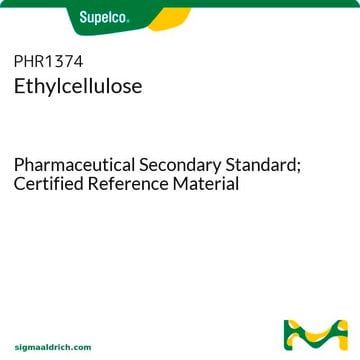82227
Propylene carbonate
Selectophore™, ≥99.0%
Synonym(s):
1,2-Propanediol cyclic carbonate, 4-Methyl-1,3-dioxolan-2-one
About This Item
Recommended Products
grade
for ion-selective electrodes
Quality Level
vapor pressure
0.13 mmHg ( 20 °C)
0.98 mmHg ( 50 °C)
description
solvent for preparation of membranes
product line
Selectophore™
Assay
≥99.0% (GC)
≥99.0%
form
liquid
autoignition temp.
851 °F
expl. lim.
14.3 %
refractive index
n20/D 1.421 (lit.)
n20/D 1.423
bp
240 °C (lit.)
mp
−55 °C (lit.)
density
1.204 g/mL at 25 °C (lit.)
SMILES string
CC1COC(=O)O1
InChI
1S/C4H6O3/c1-3-2-6-4(5)7-3/h3H,2H2,1H3
InChI key
RUOJZAUFBMNUDX-UHFFFAOYSA-N
Looking for similar products? Visit Product Comparison Guide
General description
Application
Legal Information
Signal Word
Warning
Hazard Statements
Precautionary Statements
Hazard Classifications
Eye Irrit. 2
Storage Class Code
10 - Combustible liquids
WGK
WGK 1
Flash Point(F)
269.6 °F - closed cup
Flash Point(C)
132 °C - closed cup
Personal Protective Equipment
Regulatory Listings
Regulatory Listings are mainly provided for chemical products. Only limited information can be provided here for non-chemical products. No entry means none of the components are listed. It is the user’s obligation to ensure the safe and legal use of the product.
FSL
Group 4: Flammable liquids
Type 3 petroleums
Hazardous rank III
Water insoluble liquid
ISHL Indicated Name
Substances Subject to be Indicated Names
ISHL Notified Names
Substances Subject to be Notified Names
JAN Code
82227-VAR:
82227-25ML:
82227-BULK:
82227-5ML:
Choose from one of the most recent versions:
Certificates of Analysis (COA)
Don't see the Right Version?
If you require a particular version, you can look up a specific certificate by the Lot or Batch number.
Already Own This Product?
Find documentation for the products that you have recently purchased in the Document Library.
Customers Also Viewed
Our team of scientists has experience in all areas of research including Life Science, Material Science, Chemical Synthesis, Chromatography, Analytical and many others.
Contact Technical Service












